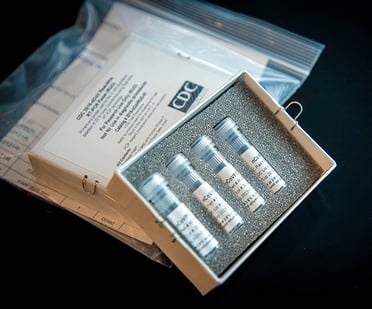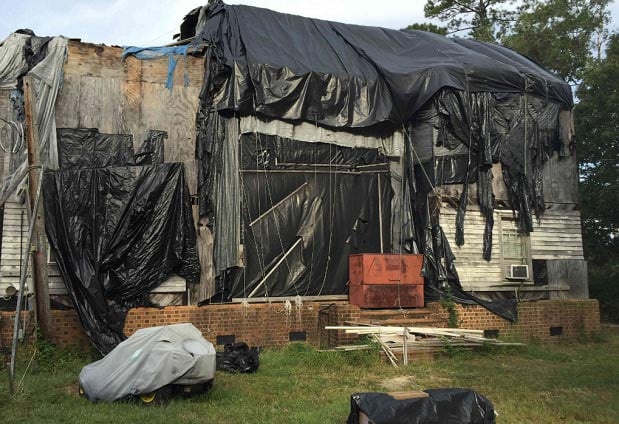
In partnership with Federal Trade Commission and other agencies, the FBI recently had a Twitter Chat on corona-virus-related scams. We participated and learned valuable information we want to pass along.
Fraudsters are immensely creative. While many of us are staying at home, scammers are busy working to steal your money and to trick you into helping them commit crimes. Many victims are seeking medical attention and equipment. With so many unemployed and looking for work, there is a high level of desperation right now. Beware of any type of urgent and emotional decision that could make you a victim. It's time to stay more alert than ever.
One of the most prevalent schemes the FBI is currently seeing is government impersonators. Criminals are reaching out to people through social media, emails, or phone calls, pretending to be government officials. In some cases, they’re even going door-to-door trying to convince someone that they need to provide money for COVID-19 testing, financial relief, or medical equipment. From cryptocurrency scams to work-from-home scams, here are tips on how to spot fraud.

COVID-19 Treatment and Test Scams
Scammers are using the pandemic to steal money. Legitimate medical professionals and scientists are working hard to find a cure and an approved treatment. Unfortunately, they don’t exist yet. When a cure or an approved treatment becomes available, you won’t hear about it for the first time through an email, phone call, door-to-door unsolicited sales pitch, or online advertisement.
Don’t provide personal information to strangers offering fake tests and treatments. Check your medical bills to make sure no one bills you for medical services you didn’t receive. If you suspect a medical scam, report it.
 Photo: CDC.gov
Photo: CDC.gov
Beware of scammers who contact you to tell you the government requires you to take a COVID-19 test or who try to sell you a test kit. A physician or a trusted health care provider should assess your condition and provide reliable testing.
At-home test kits are another frequent scam. Be sure the test you buy is on the FDA-approved at-home test list. Any other at-home test is a scam or may provide dangerous false-positive or false-negative results. The best way to be tested for COVID-19 is at a designated medical facility near you.
VDH Contact Tracing Information
Contact tracing is the process of contacting people who have tested positive for the virus, asking questions about who the person has been in contact with and where they have been, then contacting those individuals to alert them of possible contact. Contact tracing is done by the health department and helps to: stop or slow the spread of the virus, let others know about possible exposure, share information about testing and treatment, and understand more about the virus and what can be done about it.
A representative from the health district where you live will contact you by phone, from your local health district, or by email, from an ending in "vdh.virginia.gov" with instructions for you to call a VDH phone number. No emails will be sent with links to click and no text messages will be sent. Parents or guardians will be present for calls with minors.
They will ask for a list of people you were with and places you have been within 48 hours of symptoms beginning. The Department of Health will be persistent in attempting to contact you as they work to protect the health of all Virginians. You can expect multiple calls until you are reached.
VDH will only disclose where the general area that contact occurred such as at a store, at work, or through personal contact. VDH will not identify who tested positive because of privacy laws. Emails from VDH will not include a link. Do not click on any links sent to you related to contact tracing. VDH does not require any payment or fees related to contact tracing. You can learn more at the FTC website.
COVID-19 Email, Phone and Text Scams
If you receive a suspicious robocall related to the coronavirus, you should hang up. Don’t give the caller money or personal information. You should also report the call.
Use extreme caution in any online communication. Phishing emails and texts might look like they’re from a company you know or trust. If you receive an email or a text that asks you to update or verify personal info, contact the company via a phone number or website you know is real.

The FBI anticipates a rise in business email schemes related to the COVID-19 pandemic. Businesses of all sizes can become targets of scams. In typical business email compromise schemes, victims receive emails asking them to send funds to new accounts. Verify whom the sender is by calling and asking if the person sent you the email. Criminals will sometimes change just one letter in an email address to make it look like someone you know. Be very wary of attachments or links; hover your mouse over a link before clicking to see where it’s sending you. If it doesn't match the content of the email or the sender, delete the email.
Stimulus Check Scams
During the pandemic, beware of phishing emails that ask you to verify your personal information to receive an economic stimulus check. Government agencies are not sending unsolicited emails seeking your private information in order to send you money.
You don't make any payment to get an Economic Impact Payment. Also, you won't need to “pay it back” or pay taxes on it - it is not considered income. It will not reduce your refund or increase taxes owed when you file next year.

Donation Scams
Only donate to charities you know and trust, pay by credit card or check, and make donations directly rather than through intermediaries. Don’t let anyone rush you into donating. If someone wants a donation in cash, by gift card, or by wire transfer, don’t send it. You're likely the target of a scam and should report it.
Work-from-Home Scams
Fraudsters will promise easy money for little to no effort. Remember: if it sounds too good to be true, it probably is too good to be true. If someone asks you to accept a “donation” of funds into your bank account or to open bank accounts in your name for a business, you have likely become the target of a money mule scam.
In general, be suspicious of anyone offering you something that’s “too good to be true” or is a secret investment opportunity or medical advice. Seek out legitimate sources of information. For accurate info about the coronavirus, visit the official COVID-19 website or the FBI's COVID-19 site. For financial information, contact your bank or other financial institution, ftc.gov or irs.gov. For medical, seek advice from your doctor, cdc.gov, Virginia Department of Health, or your local health department. Please stay safe, healthy, and cyber smart!
Learn more about cyber insurance in Virginia >




